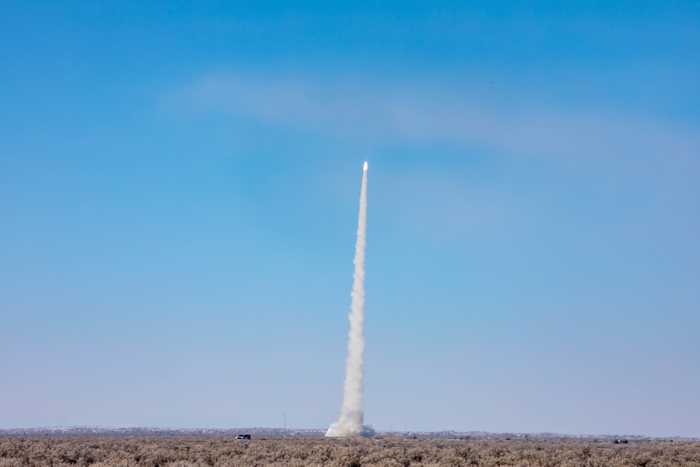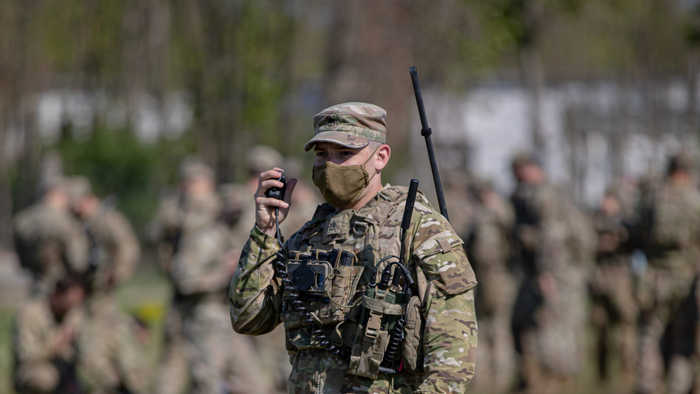Published 18:03 IST, August 22nd 2024
US Army’s Scarlet Dragon Experiments Revolutionize Targeting with Maven Smart System
The U.S. Army’s XVIII Airborne Corps has launched groundbreaking experiments with the Maven Smart System, an advanced targeting and logistics tool.
- Defence
- 3 min read
Kentucky, USA: A coalition of elite Army units has embarked on a series of groundbreaking experiments with an advanced targeting system that is now actively deployed within U.S. Central Command and is addressing global logistics challenges. The XVIII Airborne Corps, commanding prestigious divisions such as the 82nd Airborne, 10th Mountain, 101st Airborne, and 3rd Infantry Divisions, initiated the Scarlet Dragon experiments in late 2020. This initiative has given rise to the Maven Smart System, a cutting-edge blend of sensors and software designed to revolutionize battlefield assessments.
The Maven Smart System, developed through numerous iterations of the Scarlet Dragon experiments, integrates artificial intelligence (AI) and machine learning to process vast amounts of data, pinpoint targets, and execute precise strikes. The system’s evolution was showcased at the Armed Forces Communications and Electronics Association TechNet event in Augusta, Georgia. Brig. Gen. John Cogbill, deputy commanding general of XVIII Airborne Corps, emphasized the system’s immediate operational capabilities, stating, “This is a tool that we can ‘fight tonight’ with.”
Experiments Mark Milestones in Precision and Speed
The inaugural Scarlet Dragon experiment in late 2020 involved a collaboration between XVIII Airborne Corps soldiers and Marines from the II Marine Expeditionary Force. Utilizing commercial satellite imagery and advanced algorithms, the teams identified an inflatable tank at Fort Liberty. The data was then relayed to a Marine missile system, resulting in a “digital target pass” that initially required over 12 hours to complete.

However, significant advancements have since been made, with the target pass time now reduced to under one minute. This progress is a testament to the ongoing refinements driven by former XVIII Airborne Corps commander Gen. Michael Kurilla. Kurilla, who envisioned the creation of an “AI-enabled Corps,” later integrated the Maven system into U.S. Central Command’s operations, enhancing its data-centric command approach.
AI-Driven System Revolutionizes Logistics and Operational Efficiency
A recent analysis by the Center for Security and Emerging Technology has highlighted the transformative impact of Maven on operational efficiency. Traditionally, firing processes were manual and fraught with inefficiencies. Maven’s introduction has streamlined these processes, managing the same workload previously handled by over 2,000 personnel during the 2003 invasion with just 20 soldiers.

Experts within the XVIII Airborne Corps are now investigating the potential of AI and machine learning to enhance logistics management. This effort aims to provide commanders with a comprehensive overview of global supply chains and simulate scenarios to optimize logistics’ influence on operations. Scarlet Dragon continues to evolve, with an experiment scheduled for next month and further events planned through 2025.
The Maven Smart System is set to make a major impact during the Yama Sakura training exercise in late 2026, a prominent U.S.-Japanese military command post-exercise. The XVIII Airborne Corps has effectively matched the targeting efficiency of the time-critical target cell used during Operation Iraqi Freedom, underscoring the system’s potential to reshape modern military operations.
Updated 18:03 IST, August 22nd 2024